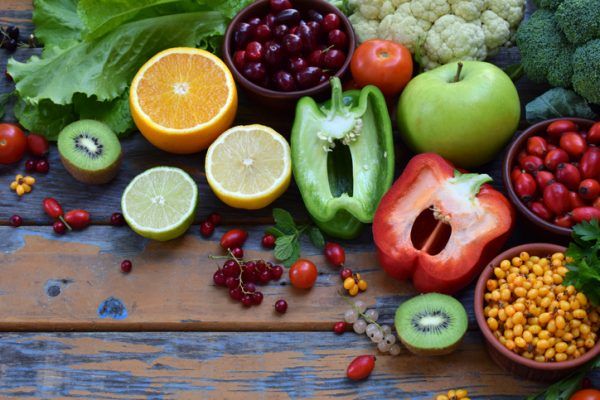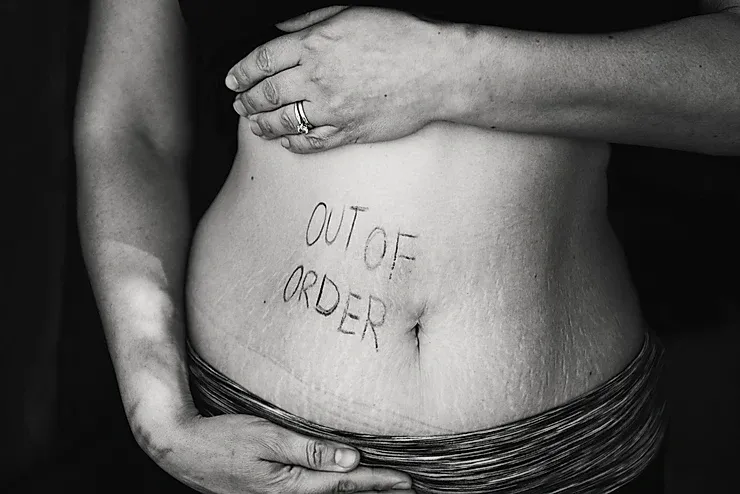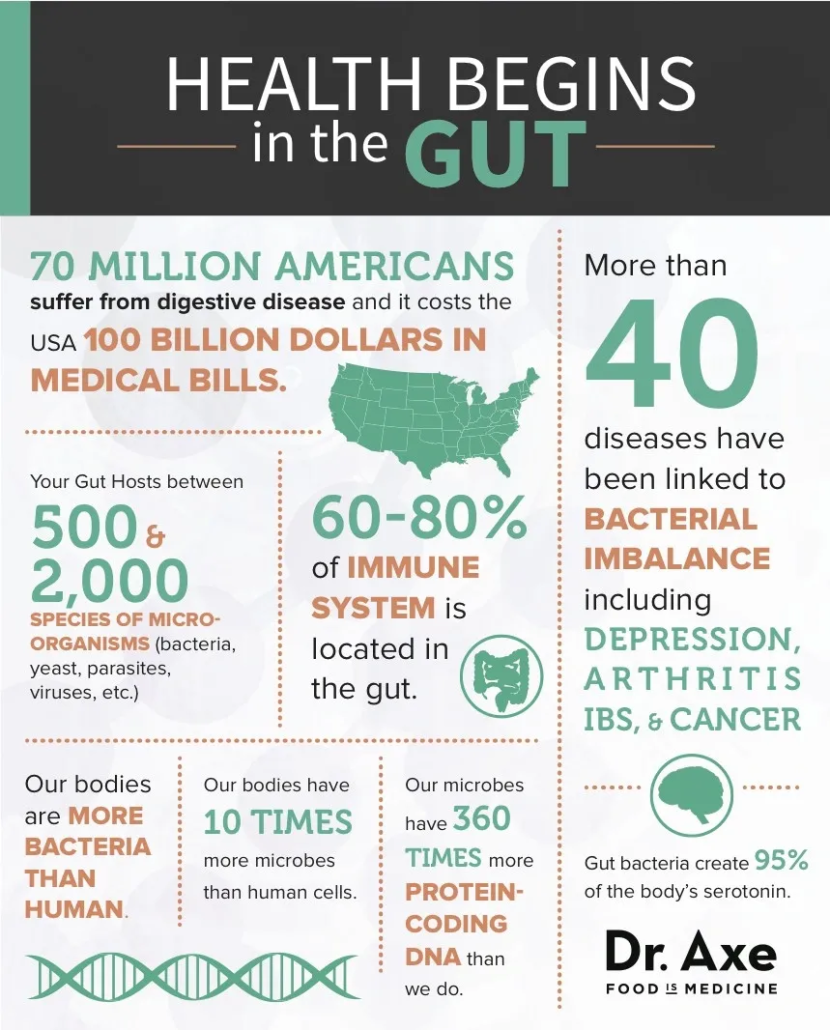Were you refreshed and able to jump out of bed…
…or did it take a while to force yourself up and out of bed, after being rudely shaken out of your slumber by that stupid alarm clock buzz, buzz, buzzing in your ear?
Did your body feel “young” and energetic as you got up, or…
…Were you achy and groggy from another restless night’s sleep?
When you looked yourself in the mirror, did you see a fresh, young face, or…
…Did you stagger into the bathroom, ankles and knees creaking , hunched over from back pain and tightness, and see an old version of yourself staring back through the mirror ? With bags under your eyes, dry & graying hair, wrinkled & dry skin?
When you looked down as you got dressed did you see a fit, lean, and healthy body, or…
… Did you see an ever-growing stomach, soft, “flabby” fat, and a body that’s become weak, tired and soft?
What goes through your mind as you look at yourself?
Are you happy with the way you look and feel, or…
… Are you frustrated by your life , with your lack of health, and with your inability to lose weight and keep it off ?
Do you mumble to yourself, “What the hell? How did I get to look and feel like this? ”
Are you at ease and peaceful, or stressed as you get ready for your day?
Do you have to drink multiple cups of coffee before you can even think about being productive and nice?
Do you drink more throughout the day, or even worse, use energy drinks and soda, because you have wild energy swings where you go from feeling good and energetic… to crashing and feeling like you need a nap?
Do you get winded easy? Lose your breath after you’ve gone up a flight of stairs, or as you rush out the door to your car?
How’s your digestion? Do you have comfortable bowel movements, or is your life all about digestive issues like constipation, bloating, bouts of diarrhea, and indigestion?
How many times have you promised yourself you were going to lose weight, and maybe even did, but then put it all back on… and more?
How many times in the last couple years have you started a “diet” or workout program? Once, twice, 10 times?
How do your failures make you feel?
If you and I were sitting face-to-face, and I asked you point blank, after all you just read, “How do you feel?” What would you say?
Look, weight gain, and weight loss, are serious concerns of yours, and I get it…
… but these other issues are also very serious:
Joint pain, muscle weakness, digestive issues, “old” skin and hair, stubborn belly fat, zero energy, and an addiction to carbohydrates…
… and they’re ALL connected.
You may be thinking this all sounds crazy, but let me ask you this…
How many of the following are you currently struggling with?
- Stubborn belly fat that will NOT go awa y, regardless of the diets you try
- Painful or uncomfortable bloating (especially after eating meals)
- Fat gain in strange places (chest in men, belly in ladies, for example)
- Painful joints
- Digestive issues (IBS, gas, stomach discomfort, constipation and/or diarrhea)
- Dry, aging skin & hair (looking older than you really are…)
- Energy swings (low energy before eating, high after… then crash)
- Constant craving of carbohydrates
- Trouble sleeping (can’t fall asleep and/or stay asleep)
- Moody and irritable if you get too hungry
- Indigestion
Your gut & stubborn belly fat…
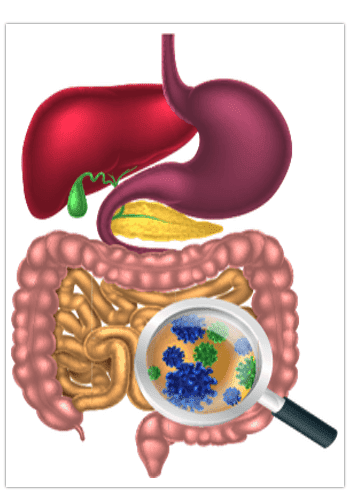 There is growing evidence showing the connection between a “leaky” gut and issues such as weight gain, thyroid problems, Type-2 Diabetes, a lack of energy, digestion problems (constipation, bloating, gas, diarrhea, indigestion, etc.).
There is growing evidence showing the connection between a “leaky” gut and issues such as weight gain, thyroid problems, Type-2 Diabetes, a lack of energy, digestion problems (constipation, bloating, gas, diarrhea, indigestion, etc.).
Basically, your gut works like this…
Your entire digestive system, from your mouth to your hind end, is one long tube that’s actually outside your body… even though it’s inside.
This long tube has very strong barriers that keep toxic substances OUT of your body, and when these barriers are damaged, as in the case of leaky gut, then food particles and toxins that are not supposed to make it into your blood stream and lymph system, are there, which then makes organs like your liver have to work double time to get rid of this toxicity.
This heavy workload then makes your liver get sluggish and bogged down (imagine yourself having to do the job of 10 people in half the time and how that would make you feel)…
When your liver gets sluggish it makes it nearly IMPOSSIBLE to burn fat, because that’s where your fat gets processed…
… but it all starts in your gut.
Your intestines have small hair-like features that line their walls that help shuttle food along, aid in digestion, and help shuttle nutrients from your digestive system into your bloodstream to be used by your body.
Unfortunately the foods you eat, including many foods falsely labeled as “healthy”, as well as too much stress, a lack of sleep, too much alcohol, a lack of Vitamin D, and more can damage this delicate system…
… Causing toxins to be “leaked” into your body, leading to weight gain, an inability to LOSE weight, achy joints, constipation, bloating, rapidly aging skin, zero energy, hormone problems, etc.
What foods can lead to such a horrible situation?
The biggest culprits are the “health foods” you eat every day, and have been told are the healthiest by big food corporations, your doctor, health teachers, and even the government.
You often hear vague claims in the news that “sugar is bad for you” or that “wheat and gluten are bad for you”, but do you truly understand what these foods do to your insides?
Most people DON’T understand the reasons …
…and the fact is that some of the foods you’re going to discover can not only DESTROY your digestive system, but also hormones and metabolism.
Not only that, but as you’ll see below, there’s a common plant-based food that you probably eat in restaurants frequently (I bet you ate this at least ONCE in the last week), and this common plant food is proven to CAUSE heart attacks!
You’ll also discover exactly what you need to understand to eat in a way that BOOSTS your metabolism, balances hormones, FIGHTS stubborn belly fat, heals your gut, and increases your energy, regardless of your “bad genetics”.
So let’s get right to it…
The 3 reasons you should NEVER eat wheat — Yes, even “whole wheat”
There are 3 main reasons why wheat is a terrible food for your body and does more harm than good…
Reason #1 — Wheat causes blood sugar disruption, Glycation of your cells, increases AGING, weight gain & boosts Diabetes risk
Before I tell you why wheat can actually speed up the aging process in your body, let’s clarify some simple biochemistry in your body…
This deals with “glycation” in your body, and substances called Advanced Glycation End Products (AGEs). These nasty little compounds called AGEs speed up the aging process in your body including damage over time to your organs, your joints, and of course, wrinkled skin.
So with that said, what is one of the biggest factors that increase production of AGEs inside your body?
This may surprise you, but high blood sugar levels over time dramatically increase age-accelerating AGEs in your body.
This is why type 2 diabetics many times appear that they have not aged well and look older than their real age. But this age-increasing effect is NOT just limited to diabetics.
So, let’s get back to how “whole wheat” relates to this…
Here is a little-known fact that’s often covered up by the massive marketing campaigns by giant food companies that want you to believe that “whole wheat” is healthy for you…
… But the fact is that wheat contains a very unusual type of carbohydrate (not found in other foods) called Amylopectin-A , which has been found in some tests to spike your blood sugar HIGHER than even pure table sugar.
In fact, amylopectin-A (from wheat) raises your blood sugar MORE than almost any other carbohydrate source on earth based on blood sugar response testing that’s documented in studies.
This means that wheat-based foods such as breads, bagels, cereals, muffins, and other baked goods often cause MUCH higher blood sugar levels than most other carbohydrate sources.
If you don’t believe me, here’s something you should know… I ran personal blood sugar tests on myself using a blood glucometer about 45 minutes after eating 2 slices of wheat bread vs eating a bowl of oatmeal, with equivalent grams of carbohydrates.
The blood sugar test results of wheat vs oatmeal : 
2 slices of whole wheat toast :
45 minutes after consumption: Blood sugar spiked from 86 fasting level to 155
1 Bowl of Oatmeal (equivalent grams of carbs to 2 slices wheat toast)
45 minutes after consumption: Blood sugar increased from 86 fasting level to 112
As you know now, the higher your average blood sugar levels are over time, the more AGEs are formed inside your body, which makes you age FASTER.
Clearly, the whole wheat spiked blood sugar MUCH higher than the oatmeal, and if you don’t know, 155 is a massive blood sugar reading that will certainly contribute to faster aging if you eat wheat frequently… and most people eat wheat without even thinking about it at almost EVERY meal…Yikes!
Not only that, but the high blood sugar spikes caused by wheat also makes your body pump out more insulin which makes you pack on more body fat … Not fun at all!
These massive blood sugar spikes from eating wheat daily also cause damage over time to your blood sugar regulation system, harming your pancreas, causing insulin resistance, and eventually causing type 2 Diabetes . I think we have a strong case against eating so-called “healthy” wheat!
Reason #2 — Gluten and other gut-damaging compounds
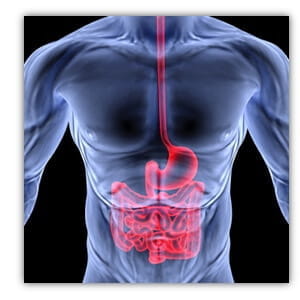 The topic of gluten is on fire in the media lately…
The topic of gluten is on fire in the media lately…
…But most people are confused as to whether there’s any real health risks with gluten for the average person that doesn’t have Celiac disease.
The truth is that even if you are not officially “gluten intolerant ” or “gluten sensitive “, there are hundreds of published studies that indicate that gluten can cause inflammation in your digestive system , and even cause “permeability” in your gut, which can lead to a health condition that’s on the rise lately called Leaky Gut , as well as other digestive issues and autoimmune problems .
Scientists theorize that the reason gluten is causing these digestive system problems is due to the excessive hybridization of wheat over the last 50 years, which has created newly modified gluten molecules that are foreign to the human digestive system compared to the ancient wheat that humans ate for several thousand years historically, and even compared to the wheat that your grandparents ate 50+ years ago.
Reason #3 — Antinutrients and mineral blockers in wheat
The third reason that wheat is terrible for you is that it contains what’s called “antinutrients “, which are naturally occurring compounds in the wheat plant, but can cause undesirable effects in humans that eat too much of them.
One of these antinutrients is called phytates , which blocks the absorption in your body of certain minerals like zinc, iron, manganese, and calcium if you eat wheat too often.
Again, most people eat wheat with almost every meal (cereal in the morning, bread on sandwich at lunch, and pasta or bread at dinner), so this can cause a mineral deficiency in your body over time that leads to many health conditions.
Wheat has other mineral blockers and antinutrients aside from phytates, such as lectins. Lectins are another constituent of wheat that causes gut irritation . Yet another reason to minimize or eliminate wheat from your diet.
There’s absolutely nothing “essential” about wheat in the human diet …It simply does more harm than good…period.
Many people often ask me… “But what about the FIBER in wheat? I thought that’s why it’s supposed to be healthy?”
Sorry, you can get ALL of the fiber you need from fruits, veggies, and nuts, without the digestive system damage and massive blood sugar issues that are caused by wheat.
Note: It’s important to keep reading this page because I’ll show you how to get access to ALL of my best secrets for AVOIDING wheat, but still eating amazingly delicious meals that BOOST your metabolism, BALANCE your hormones, FIGHT diabetes, and also help reduce abdominal fat. It’s easier than you think, so don’t think that eating healthy has to be “boring” like so many people foolishly believe.
The 3 reasons you should NEVER use Vegetable Oils…
Although vegetable oil has a healthy sounding name, it’s NOT made from vegetables…As you might already know, vegetable oil actually comes from any combination of corn oil, soybean oil, canola oil, safflower oil, and/or cottonseed oil, ALL of which are absolutely terrible for your health.
In fact, they are downright deadly , and I’m not exaggerating. Here’s why…
Reason #1 — Vegetable oils usually contain deadly trans fats, even if non-hydrogenated
You already KNOW that trans fats are deadly, so I won’t go into all of the science as to why trans fats kill you and DAMAGE your cell membranes in your body…leading to all sorts of scary health problems like cancer, obesity, Alzheimer’s, heart disease , and more.
Knowing these facts, I’m sure you already know to stay away from foods that contain partially hydrogenated vegetable oils. You’ve heard that a million times before.
However, what you probably DON’T know is that even non-hydrogenated vegetable oils (all vegetable oils are refined) also contain some trans fats due to the extremely high heat, solvents, and pressure they are exposed to during the refining process. And yes, this includes so-called “expeller pressed” vegetable oils as well.
All of this high heat and high pressure processing along with the use of hexane solvents actually forces some of the polyunsaturated content of vegetable oils (yes, even so-called “healthy” canola oil) to be transformed into trans fats and something even worse that we’ll talk about in a minute called “MegaTrans “.
According to Dr. Mary Enig, PhD, and Nutritional Biochemist, “Although the Canadian government lists the trans fat content of canola at a minimal 0.2 percent, research at the University of Florida at Gainesville, found trans fat levels as high as 4.6 percent in commercial liquid canola oil “.
And this is the garbage that the government and giant food conglomerates are marketing to you as a “healthy oil”! Don’t fall for it.
Reason #2 — Vegetable oils contain oxidized “mutated fats” that are worse than trans fat & CAUSE heart attacks
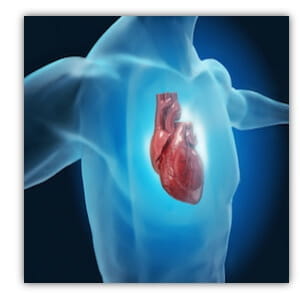 All vegetable oils contain oxidized fats due to the refining process and chemical reactions with the polyunsaturated fat content of vegetable oils.
All vegetable oils contain oxidized fats due to the refining process and chemical reactions with the polyunsaturated fat content of vegetable oils.
Expert Nutrition author, Catherine Shanahan, MD, calls the fats in vegetable oils “MegaTrans”, because they are similar in chemistry to trans fats, but even WORSE.
And MegaTrans from vegetable oils are found in almost ALL processed packaged foods, as well as virtually ALL restaurant fryers.
French Fries proven to immediately harm your arteries after eating them:
Free radicals formed during the refining of vegetable oils create these “mutant” fats, which damage your cell membranes & chromosomes, and create massive inflammation in your body .
The free radicals in vegetable oils also damage your arteries, which can directly lead to a heart attack . Please be aware that this isn’t just a long-term risk of eating vegetable oils daily.
There are also studies that show immediate dysfunction in your arteries, also called endothelial function.
Catherine Shanahan, MD, cites in her book Deep Nutrition a study from New Zealand that showed that subjects who ate french fries from a restaurant fryer displayed immediate harm to their endothelial function of their arteries, going from a normal 7% dilation before eating the french fries to almost NO dilation at all (only 1%) AFTER eating the french fries. This is one thing that can cause a heart attack.
If you think I’m exaggerating, think again…
Dr Shanahan also surveyed hundreds of patients that were admitted to the hospital for a heart attack, and discovered that every sing le patient that just had a heart attack had consumed foods made with vegetable oils with their last meal before the heart attack…Scary huh!
Think about THAT next time you order the fries with that sandwich on the menu! It really is THAT serious .
Always ask to replace french fries that come with most meals with side veggies, fruit, or a salad instead. That may very well be the difference between dying tomorrow or enjoying many more years on this beautiful planet.
Reason #3 — Vegetable oils cause massive imbalances with your Omega-6 to Omega-3 fats ratio
One of the other MAJOR reasons that vegetable oils are killing you is they are mostly made up of inflammatory omega-6 fats, while having very little anti-inflammatory omega-3 fats.
The healthiest ratio from the scientific literature appears to be a ratio of 2:1 or even 1:1 for your omega-6 to omega-3 ratio. However, most vegetable oils skew your ratio as high as 20:1 or even 30:1 in favor of harmful inflammatory omega-6 fats.
And worse yet, these omega-6 fats are NOT the innocent type found in nuts, they are the “mutant” damaged MegaTrans type that harm the tissues of your body.
This Omega fat imbalance can be YET another reason why vegetable oils lead to heart disease, cancer, obesity, and many other degenerative diseases that WILL shorten your life significantly if you don’t cut out the vegetable oils ASAP.
As a quick note, the solution to all of these major problems with vegetable oils is to use healthy oils like coconut oil, olive oil, macadamia oil, avocado oil, and grass-fed butter, all of which are MUCH healthier than vegetable oils and don’t cause any of the problems we’ve described in this section of the article.
The TRUTH about sugar… You can’t just “burn off” sugar…
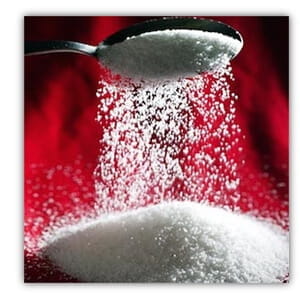 You’ve heard a million times from health experts, bloggers, and on the news that sugar is terrible for you, but most people don’t truly understand WHY it’s so bad…
You’ve heard a million times from health experts, bloggers, and on the news that sugar is terrible for you, but most people don’t truly understand WHY it’s so bad…
In fact, most people falsely think that if they eat sugar, they can just exercise a little bit harder that day or the next day so they can “burn it off”…
Unfortunately, that kind of thinking will lead you to an early grave.
It’s not as simple as just “burning off sugar”…
It’s about what sugar does internally to the cells of your body, and how sugar gums up your internal workings, causing disease.
Once again, I’m not exaggerating here, so pay close attention…
If you knew exactly why sugar is so bad for you and exactly what it does to your cells in your body, I promise that you would think twice about eating that piece of cake, candy, sugary soft drink, fruit juice, or ice cream, or feeding them to your children.
Here are just a few of the reasons that sugar is killing you…
- Just like we talked about above with wheat, sugar also causes extreme fluctuations in your blood sugar, and excess blood sugar causes Glycation inside your body, which accelerates the rate of aging of your organs, skin, arteries, and joints .
- Sugar also raises your triglycerides to dangerous levels, which can lead you to heart disease .
- If that weren’t bad enough, eating sugar too frequently also causes type 2 diabetes in the long run because you wear out your pancreas and insulin sensitivity.
- And if you need even MORE reasons why sugar will kill you, sugar also slows down your white blood cells , making infection more likely, and even allowing CANCER cells a better chance to form in your body.
Scary stuff huh!
Of course, you already know that sugar makes you fat, and gives you excess calories without any beneficial nutrients whatsoever.
To clarify , when we talk about how much damage sugar does to your body, we’re NOT talking about tiny amounts such as having 5 grams of sugar from a teaspoon of honey in your tea… Small amounts of natural sugar like that are not a problem.
The REAL damage occurs when you eat that piece of cake and ingest 40-50 grams of sugar in one sitting, or that bag of candy with 35+ grams of sugar, or that soft drink with 45 grams of sugar or more…
Or even that so-called “healthy” smoothie at the local smoothie shop that contains a whopping 80 grams of sugar because of all of the fruit syrups they use in them.
Now that you know why sugar, wheat, and vegetable oils are killing you and your family, maybe you’ll think twice about eating cereals, breads, bagels, muffins, candy, and processed foods or fried foods from restaurants that are cooked in vegetable oil.
Here are some examples of foods below that you might be eating and didn’t even realize they are making you fatter, and making your fat cells “sick”…
So-Called “Health Foods” That Are Causing You to GAIN More Body Fat?
I can’t tell you how many times I’ve walked into the kitchen of a client of mine that has hired me for nutritional counseling, and I’m shocked by what I see…
Almost every time, I see their kitchen cabinets and fridge LOADED with foods that they think are “healthy” (or have been deceived by clever food labels into believing are healthy), but in reality are fat-storing traps in disguise.
It’s not uncommon to see foods such as:
- whole grain breads
- whole grain cereals
- whole grain crackers (more of that wheat that’s killing you)
- soy milk
- tofu or “veggie burgers” (non-fermented soy can be harmful to your hormones)
- orange juice (loaded with too much fructose that raises your triglycerides)
- apple juice
- skim milk or homogenized milk
- margarine (deadly trans fat or even “MegaTrans”)
- pre-packaged “diet” dinners
- sport drinks
- protein bars (most are candy bars in disguise!)
- overly processed meal replacements (with more junk than healthy ingredients)
- rice cakes (massive blood sugar spike)
- pasta (more wheat to age you faster)
- diet ice cream or diet desserts
- so-called “energy” drinks
- low-fat foods (usually replaces fat with more sugar)
- low-carb processed foods
- soybean oil, corn oil, canola oil
- etc, etc
I see this trend over and over again with almost every client when I first inspect their cabinets and the foods that they were buying that they thought were healthy.
What they don’t realize is that it’s these exact foods that are sabotaging their fat loss efforts, increasing their cravings, and throwing their hormones out of whack..
Here’s Your Simple Fat Loss Solution…
So how do you repair your damaged digestive system and start melting away your embarrassing belly fat , while also increasing your energy, & fighting joint pain?
The simplest way is to get rid of the foods you now KNOW are damaging your system.
Second, add “fermentable fibers” to your diet, which are also called prebiotics (sweet potato, yam, yucca, etc.) and eat a lot of fermented foods like kefir, sauerkraut, and certain types of yogurt (but most yogurts found in your grocery store are simply milk with sugar and are NOT healthy) You can also supplement with probiotics, but make sure to start slow and build up.
Third, better manage your stress through better sleep patterns, exercise, and breathing techniques. Stress is known to damage your gut , so the better you handle it, the healthier your gut will be.
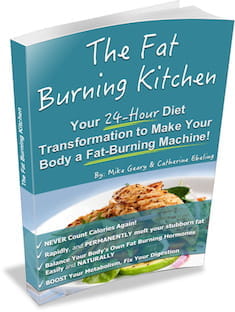 Fourth, start adding Turmeric to your diet, either with supplements or sprinkling the spice on your food. Turmeric aids your liver in flushing out the toxic substances that have been building there due to your damaged gut. It also fights dangerous inflammation
Fourth, start adding Turmeric to your diet, either with supplements or sprinkling the spice on your food. Turmeric aids your liver in flushing out the toxic substances that have been building there due to your damaged gut. It also fights dangerous inflammation
But, most importantly, you should get rid of those “health foods” causing you all those problems, and start consuming the ACTUAL foods that help you BURN stubborn belly fat , fix your hormones, fight against Diabetes, and help you look and feel YEARS younger…
Which is why I’ve teamed up with expert nutrition researcher, Catherine Ebeling, and we’ve co-authored this new program for you:
The Fat Burning Kitchen
Your 24-Hour Diet Transformation to Make Your Body a Fat-Burning Machine
Inside this brand new manual, you’ll discover:
- The true secret to making calorie-counting obsolete … this is the same principle that will automatically eliminate your cravings and control your appetite permanently (it’s the same reason that I personally haven’t had a real “craving” in at least 7 years) — pg 1-2
- The truth about polyunsaturated fats (omega-6’s and omega-3’s) that most food companies don’t want you to know — pg.18
- Which protein bars or energy bars are actually candy bars in disguise and which bars are actually good for you — pg.50
- The real deal on saturated fat and cholesterol, and why they are essential in your diet — pg.59 (Without enough saturated fats and cholesterol in your diet, you can actually HARM your hormone balance)
- The “whole grain” deception and why whole grain crackers, breads, and cereals are packing more bodyfat on you — pg.9
- Why that skim milk may not be so good for you after all, and the dirty truth about homogenized milk too — pg.29
- The one time when tilapia and salmon are NOT health foods (plus the best alternatives) — pg.36
- A healthy fat-burning burger option? Yes — pg.60
- Why soymilk, tofu, and veggie burgers could be increasing your belly fat — pg.41
- Are sports drinks stifling your fat-burning and making you AGE faster? — pg.46
- The ONLY truly healthy options for sweeteners … even non-caloric sweeteners — pg.83
- A surprisingly healthy fat in some animal products that actually helps you burn fat & build muscle (it even helps to fight cancer) — pg.60
- Why egg whites are actually WORSE for you than whole eggs — pg.65
- Do diet sodas and other diet drinks hurt your fat loss efforts? — pg.22
- Is whole milk actually better for you than skim milk? There’s more to the story — pg.67
- A type of saturated fat that actually helps to stimulate your metabolism — pg. 112
- The one time when delicious creamy chocolate can even help to prevent your sweet tooth cravings (It even helps improve your blood pressure too!) — pg.88
- Does green tea or oolong tea really increase your metabolism and help fat loss? The truth — pg.90
- Which fruits & veggies are okay to choose non-organic — pg.94
- …and TONS more secrets to help you permanently transform your diet to force your body to burn fat more effectively, while also preventing diabetes.
Did you know…
One of your body’s main fat-burning hormones DECREASES when you go on a diet?
Research has shown that this important hormone drops by as much as 50% after just 7 days of dieting!
The worst part is, the longer you try to diet, the worse it gets, which is why many “serial dieters” constantly struggle to keep the weight off (if they lose it at all…)
The good news is we’re going to share the nutrition tricks to INCREASE your body’s natural fat-burning hormones safely and naturally!
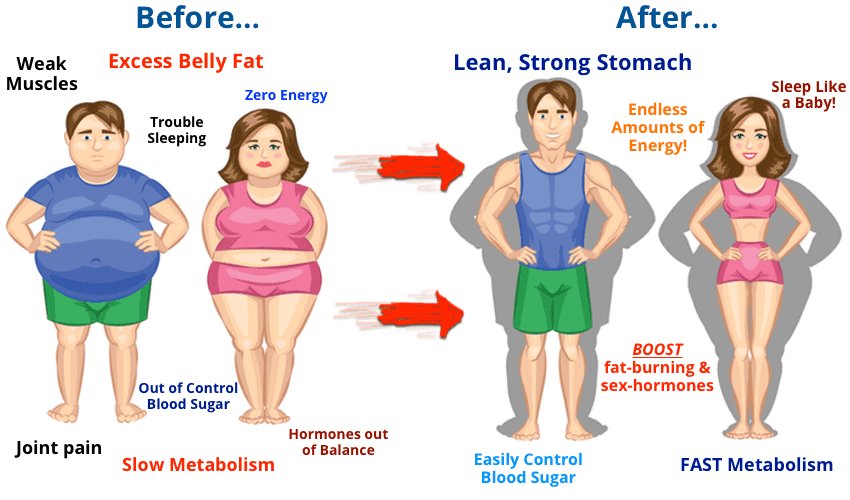
Imagine waking up every morning FULL of energy, heading to the bathroom and looking at your reflection in the mirror and actually LOVING what you see…
… Now imagine heading to your kitchen and actually feeling good about the food and drinks you see in your refrigerator and cupboard — no more struggling trying to understand what’s healthy, what’s unhealthy, what’s going to help you lose weight, what’s going to make you gain weight…
… whether a certain food fits in to the latest and greatest diet fad of the month (they seem to pop up every month, right?).
Imagine how great you’ll look and feel when you KNOW the foods that are actually good for you, that boost your metabolism , heal your joints, MELT away stubborn fat , and FIGHT aging are actually DELICIOUS, loaded with nutrition, and satisfy your appetite!
Not only are you going to finally discover the truth about the foods in your kitchen and grocery store, but you’re also going to:
- Discover how protein from these specific types of animals, not ony HELP you burn fat and gain muscle, but are also high in heart-healthy fatty acids (I bet you didn’t know THIS)
- Delicious, nutritious, and mouth-watering meal ideas that not only satisfy your appetite (which STOPS dangerous cravings), but also burn stomach fat and FIGHT aging
- The 3 BEST types of wild-caught fish (a couple probably aren’t what you think), as well as a specific type of fish you should NEVER eat
- The truth about EGGS – the media makes it very difficult to understand whether you should or should not eat eggs… and why. Discover the truth about eggs, and why you should begin eating them regularly (but you must discover WHY first)
- Like cheese? You’re about to discover one of the BEST appetite-suppressants around… but you need to eat these specific types of cheese to get the benefit
- Coconut oil and stomach fat? The truth about coconut oil may surprise you!
- The best type of NUTS for fat loss – CAUTION: some of the most popular types of nuts found in grocery stores are NOT healthy, and actually CAUSE weight gain , but others are PROVEN in studies to reduce abdominal fat, balance blood sugar, and more!
- Discover “nature’s vaso-dilator” and how this 1 nutrient can drastically improve blood flow and circulation, which not only helps your heart, but also boosts your energy levels
- Discover how 1 very FATTY food actually helps your body burn MORE fat – very odd, but scientifically proven. This food is also GREAT for your brain, and makes a great snack for kids and toddlers.
- The BEST sweeteners to add to your food and drinks. You know that sugar is horrible for your waistline and health, but do you know the best things to use instead that add mouth-watering sweetness to your morning coffee, cereals, and desserts? Yes, you CAN enjoy your morning coffee while getting incredible health benefits from it too! Coffee is a rich source of powerful anti-aging antioxidants, but most people make it WRONG.
- Discover how chocolate can be enjoyed on a daily basis! This tip not only helps you LOSE fat, but also FIGHTS the aging process! Eat up and enjoy… but you must discover the very specific TYPE of chocolate first.

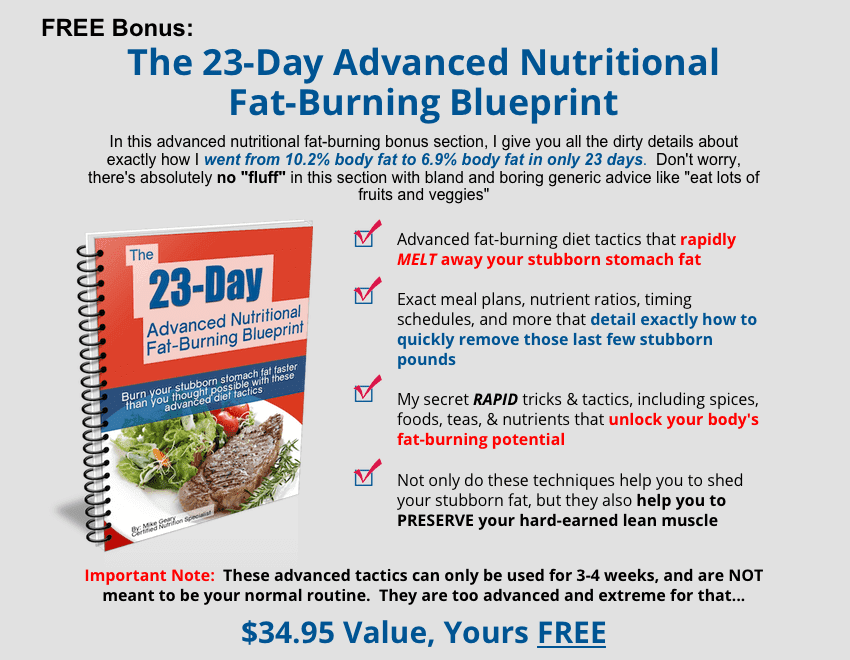

Pre-Sale 75% Discount!
Act fast! Your discount expires
when the timer runs out…



Your 75% Discount Expires In…
But you must click the “Buy Now” button within the next 15-minutes if you want to get the special rate of only $10 , because once the timer expires, this offer disappears…
… so act NOW and click the button below to get your special price of only $10.

I’m confident that you’ll LOVE the unique nutrition tips and ideas that you’ll gain through this program… You can say goodbye to cravings forever and start eating the right way to turn your body into a fat-burning machine 24/7!
By eating the foods in this program, you’ll also naturally prevent cancer from forming in your body, reduce your risk from ever developing deadly heart disease to almost zero , and keep your cholesterol ratios and blood pressure normalized!
Sincerely,

Mike Geary
Certified Nutrition Specialist
Author – Worldwide best seller: The Truth about Six Pack Abs (over 739,000 readers in 163 countries) & The Top 101 Foods that Fight Aging




 Increasing your water consumption is a simple and easy way to increase your gut (and overall) health. While the advice has long been eight glasses of water a day, you actually need about twice that much fluid each day. Of course, some of that comes from water in the foods you eat.
Increasing your water consumption is a simple and easy way to increase your gut (and overall) health. While the advice has long been eight glasses of water a day, you actually need about twice that much fluid each day. Of course, some of that comes from water in the foods you eat. , which may help you fight off illnesses. Take these simple steps toward a healthier gut microbiome today to see how it affects your life.
, which may help you fight off illnesses. Take these simple steps toward a healthier gut microbiome today to see how it affects your life.







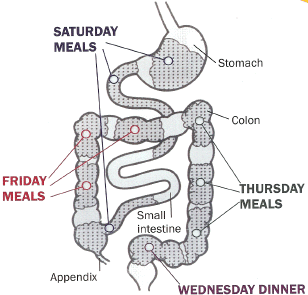
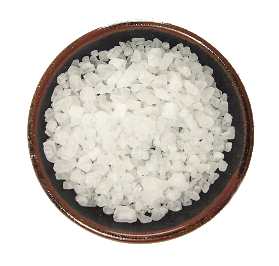

 There is growing evidence showing the connection between a “leaky” gut and issues such as weight gain, thyroid problems, Type-2 Diabetes, a lack of energy, digestion problems (constipation, bloating, gas, diarrhea, indigestion, etc.).
There is growing evidence showing the connection between a “leaky” gut and issues such as weight gain, thyroid problems, Type-2 Diabetes, a lack of energy, digestion problems (constipation, bloating, gas, diarrhea, indigestion, etc.).
 The topic of gluten is on fire in the media lately…
The topic of gluten is on fire in the media lately… All vegetable oils contain oxidized fats due to the refining process and chemical reactions with the polyunsaturated fat content of vegetable oils.
All vegetable oils contain oxidized fats due to the refining process and chemical reactions with the polyunsaturated fat content of vegetable oils. You’ve heard a million times from health experts, bloggers, and on the news that sugar is terrible for you, but most people don’t truly understand WHY it’s so bad…
You’ve heard a million times from health experts, bloggers, and on the news that sugar is terrible for you, but most people don’t truly understand WHY it’s so bad… Fourth, start adding Turmeric to your diet, either with supplements or sprinkling the spice on your food. Turmeric aids your liver in flushing out the toxic substances that have been building there due to your damaged gut. It also fights dangerous inflammation
Fourth, start adding Turmeric to your diet, either with supplements or sprinkling the spice on your food. Turmeric aids your liver in flushing out the toxic substances that have been building there due to your damaged gut. It also fights dangerous inflammation 












